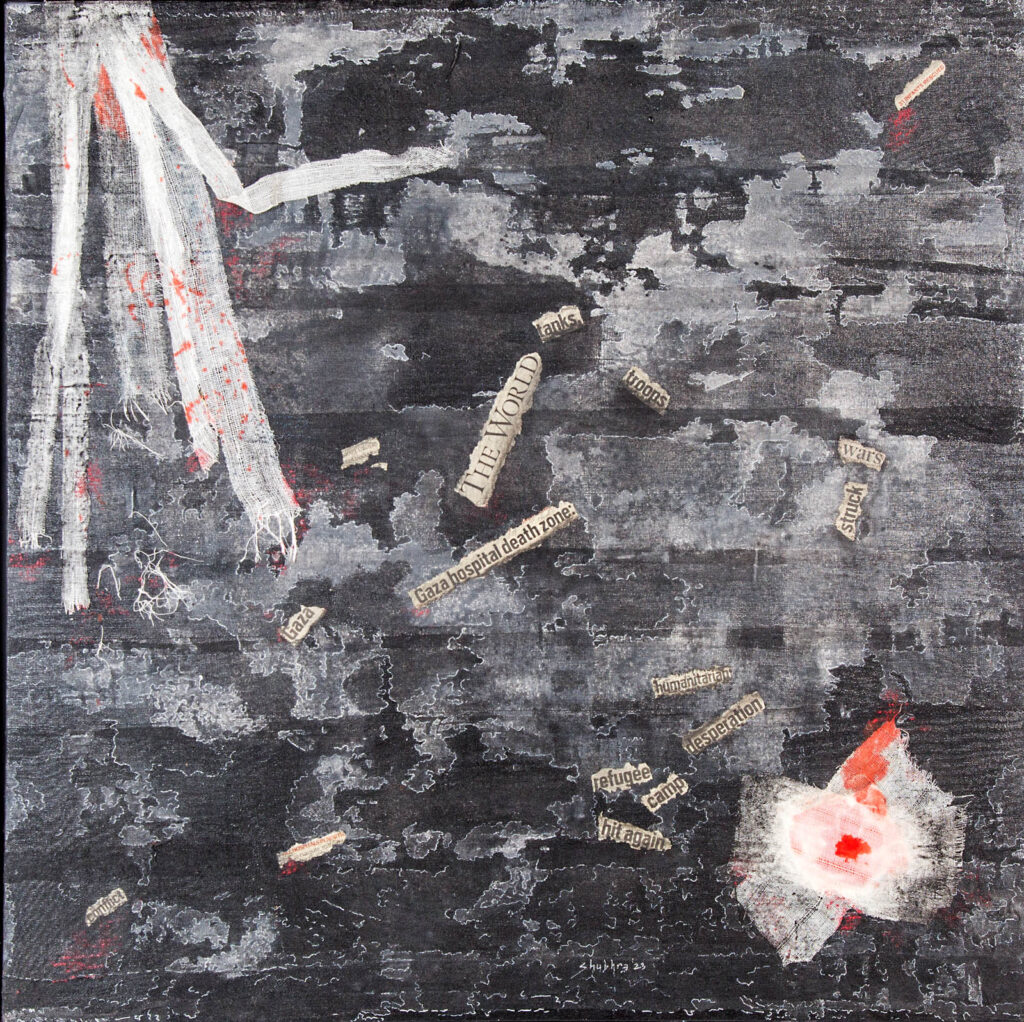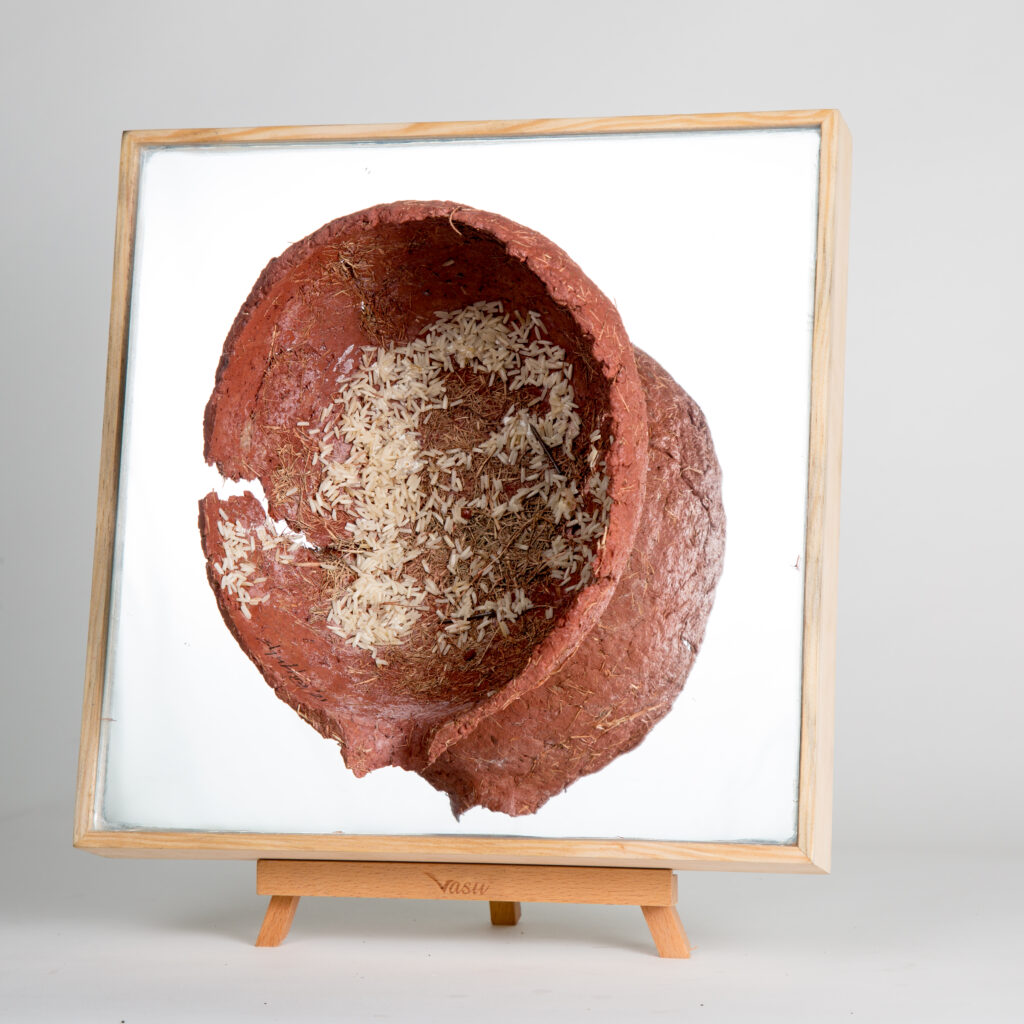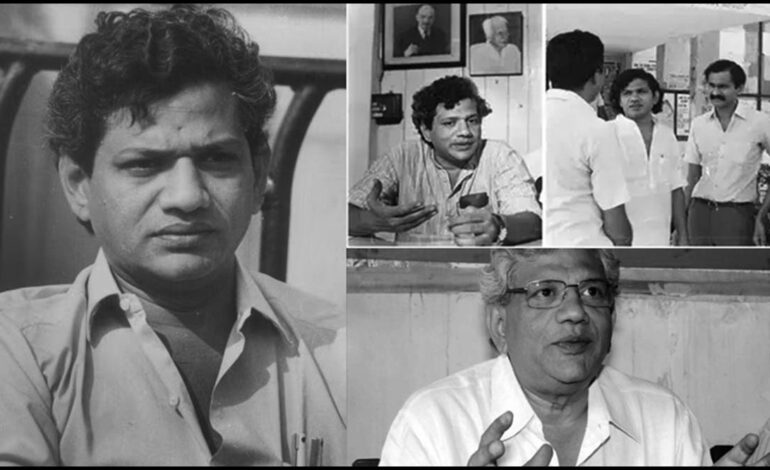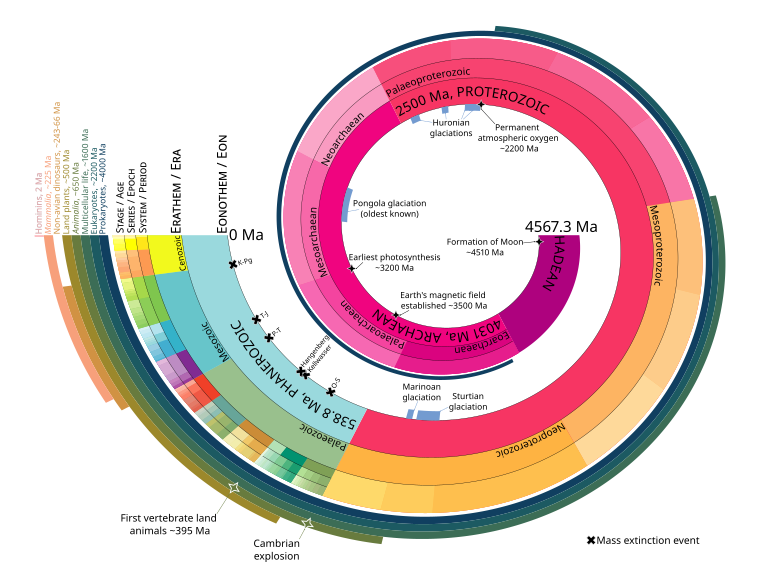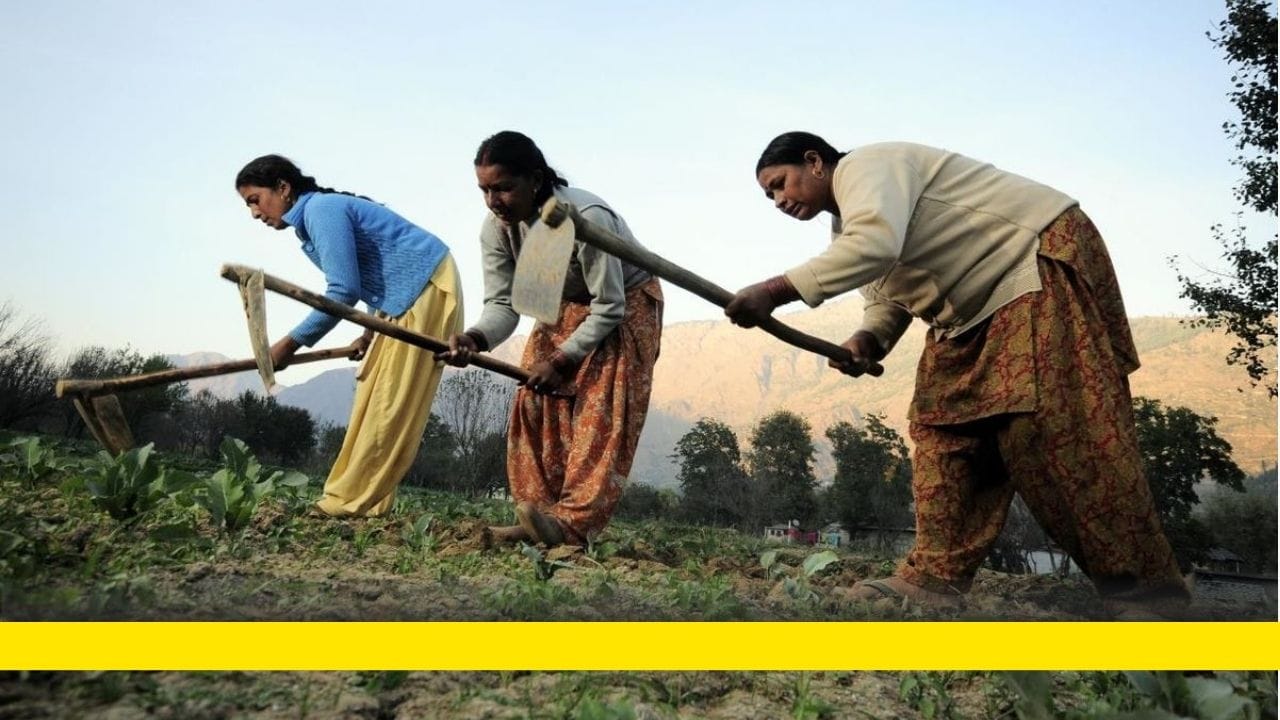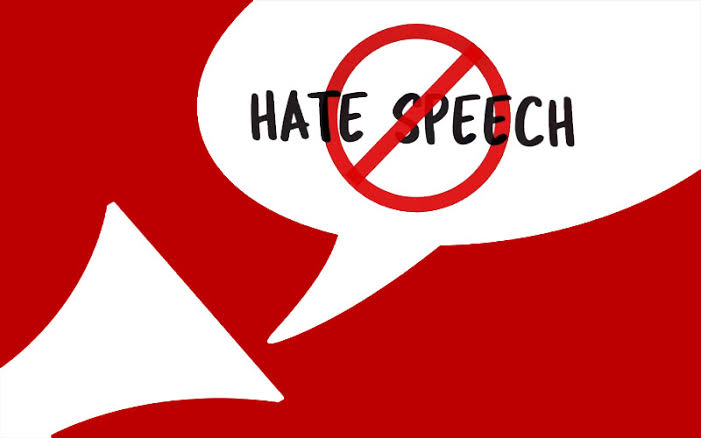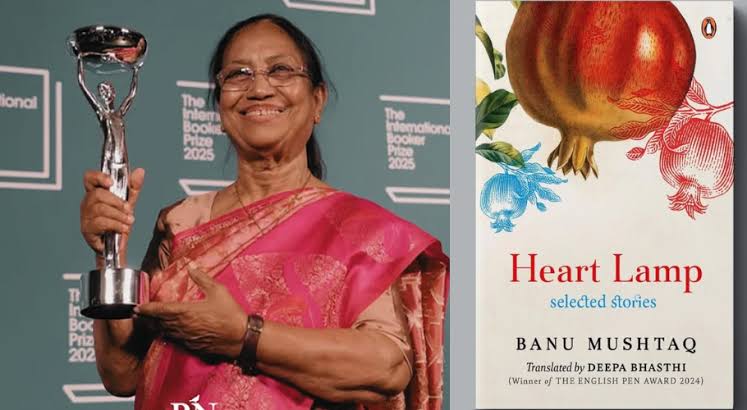Because We Must Not Forget: An Andolanjeevi Artist Holds Up The Dark Mirror
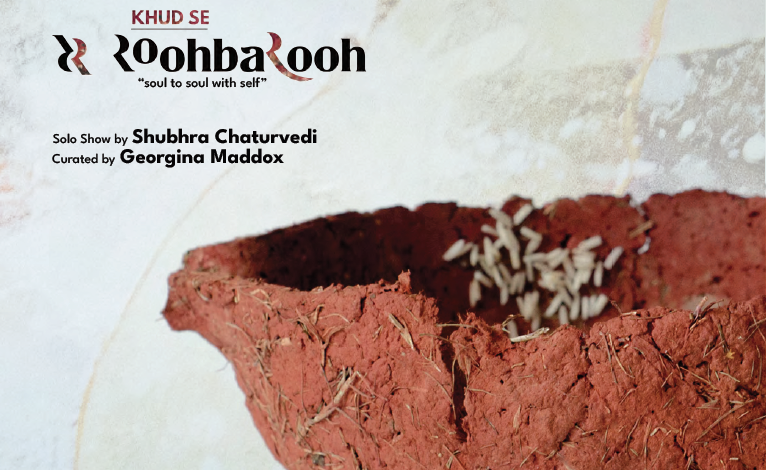
Two images compete for space in our collective consciousness as a nation, as Jammu, Kashmir and Ladakh begin to vote in a local government. There is the photo from your local newspaper – three hijab-clad women, holding up their voting index fingers and smiling at the camera lens, presenting the ‘all is well’ picture. And there is another image on a wall in a gallery in Delhi, of hands clutching jail bars.
A painting titled `Nazarband’ – look away. This is an artistic impression of what happened to the people of Kashmir five years ago. The elected representatives of the Indian Parliament voted in Delhi to splice up the state into three union territories and strike down the special status accorded to Kashmir which was its condition for agreeing to be part of the Indian republic in 1947. Such was the `faith’ of the Indian administration in annulling Kashmir’s instrument of accession, that phone lines were cut for months and high speed internet for 18 months.
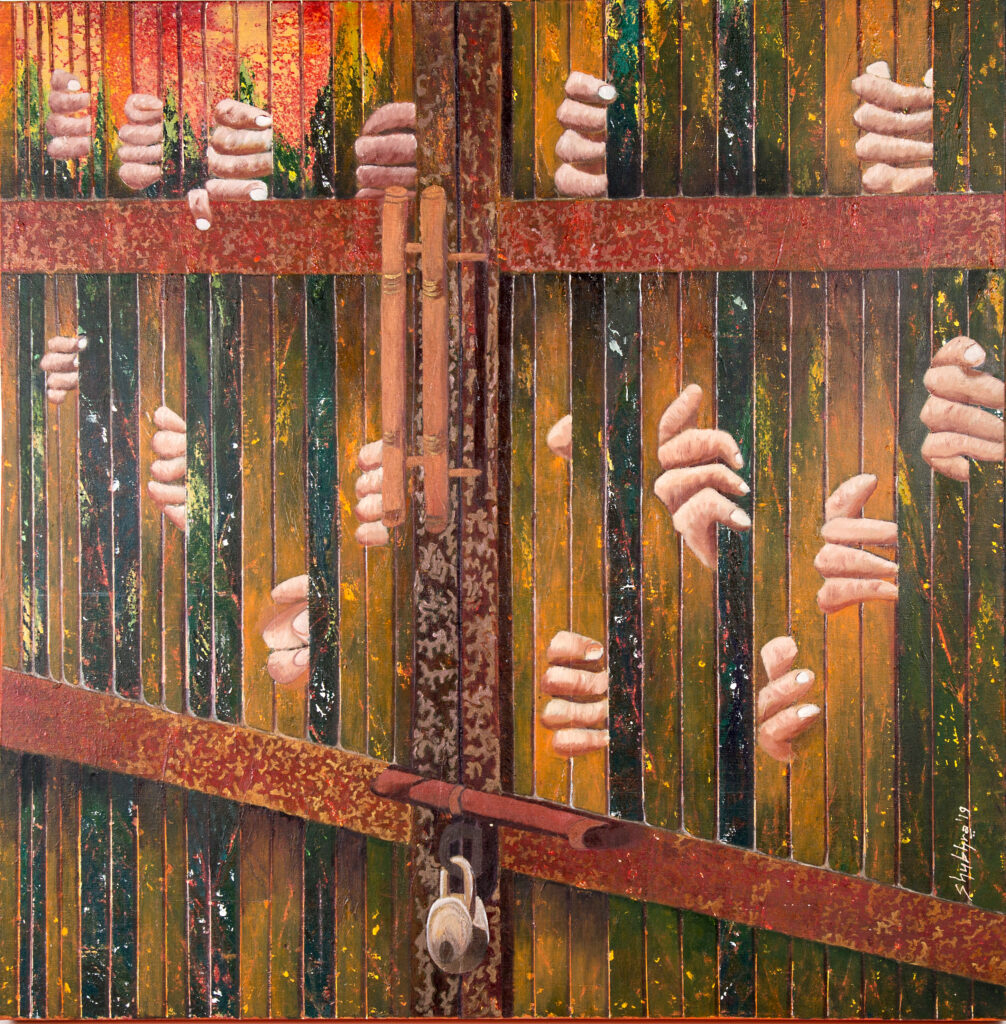
No one is supposed to do anything but smile. But the most life-affirming act, in the times we live in, of highly orchestrated images that hide more than they reveal, is the act of remembrance.
Artist Shubhra Chaturvedi’s solo show, ‘Khud Se RoohbaRooh,’ in a gallery at Bikaner House in Delhi, opens this Saturday, the 21st, with a quiet but essential claim. Never to forget. Nazarband is but one of the arresting, powerful images Chaturvedi presents us with, where the act of viewing is also one of telling each other – there are many Indias in India and the shining happy people is the least significant, when set against a decade of panic, anxiety, protests and enforced silences.
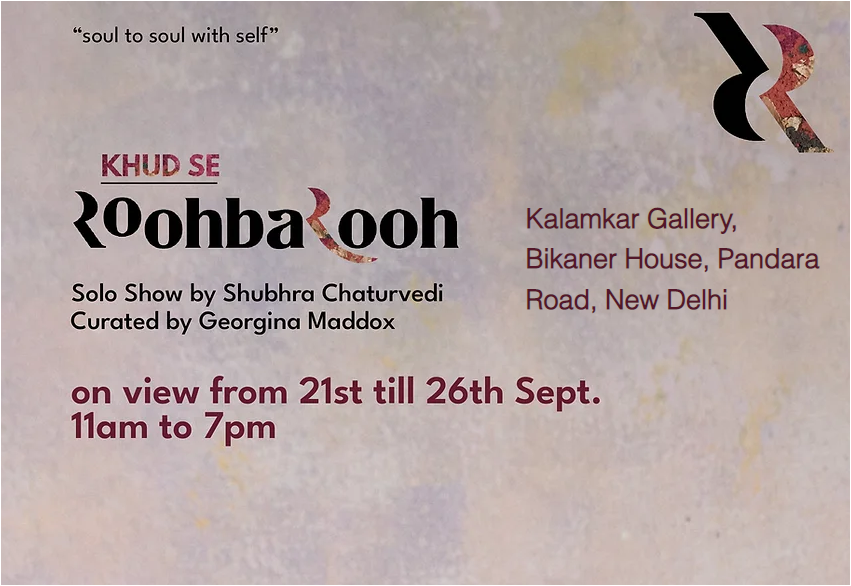
Her claim is made quietly and without wanting to “hit us on the head,” with any one way of looking at the India that we live in. But in order to see what Chaturvedi has achieved, it needs to be placed in another contrasting carousel of images. Also from Delhi, this is an image from last year, May 2023, when Prime Minister Narendra Modi inaugurated an exhibition at the National Gallery of Modern Art. The exhibition was titled – ‘Jana Shakti – A Collective Power’ and featured India’s leading artists depicting what they considered salient to the imagination of India in the present – themes from the Prime Minister’s radio broadcast – Mann Ki Baat.
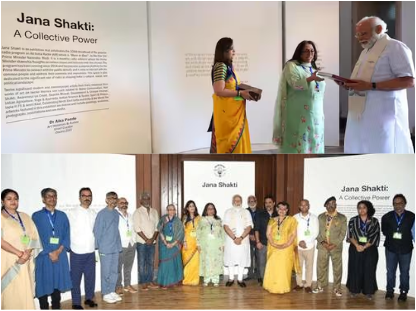
Or as the Times of India described it – “This exhibition contains works by India’s top artists on themes covered in #MannKiBaat such as Swachhata, water conservation, agriculture, space, India’s northeast, Nari Shakti and Yoga, Ayurveda.”
If India’s `top artists’ bring to us this white-washed sanitised version of ourselves, then it is even more telling that a not so widely acclaimed artist politely begs to differ. She shows us through a series of images called `Andolanjeevi,’ what we must never forget. `Sab Yaad Rakha Jayega’ one painting in this series – we will remember it all, shows us oxygen cylinders piled up against a pink wall, where as the artist reminds us, people were dying of COVID and the health minister made a statement in the Indian Parliament, informing the country that no one died due to an oxygen shortage. Remember, that is what we can do. Remembering changes everything.
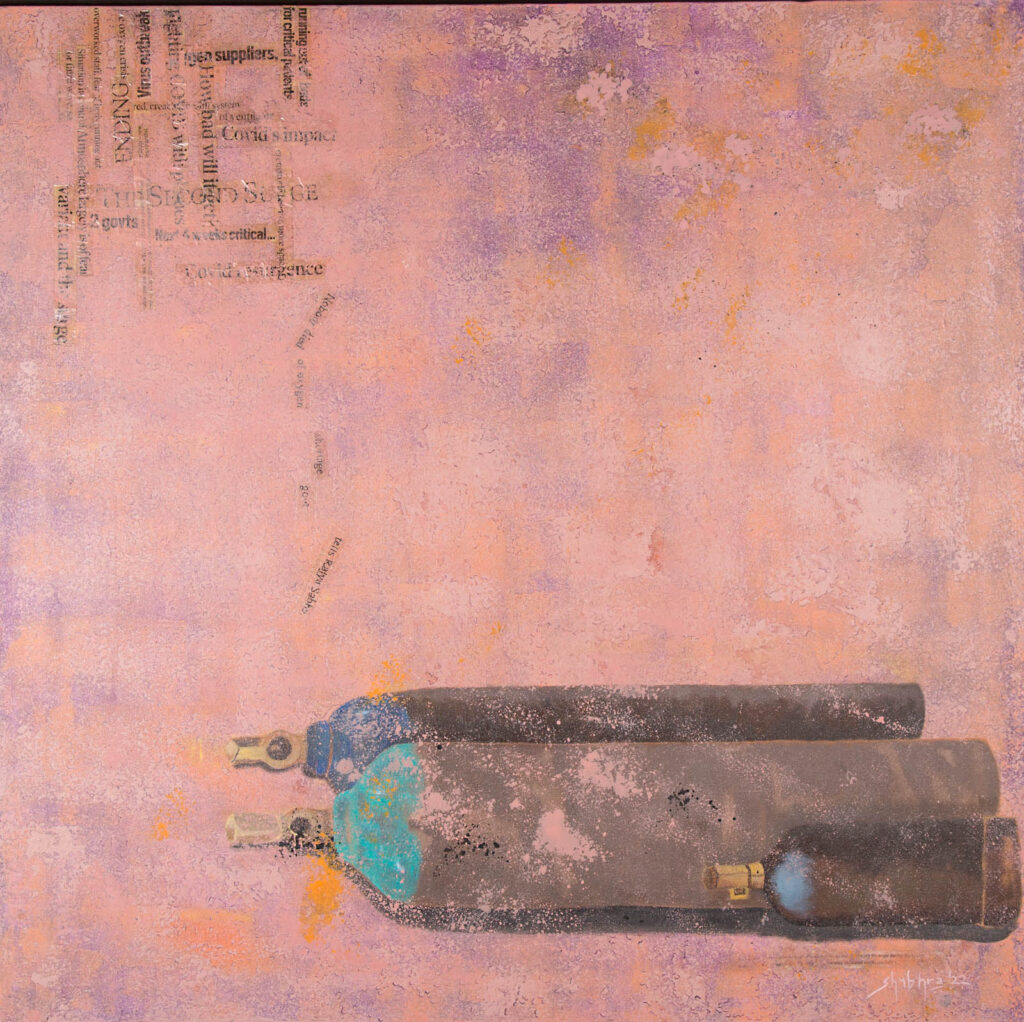
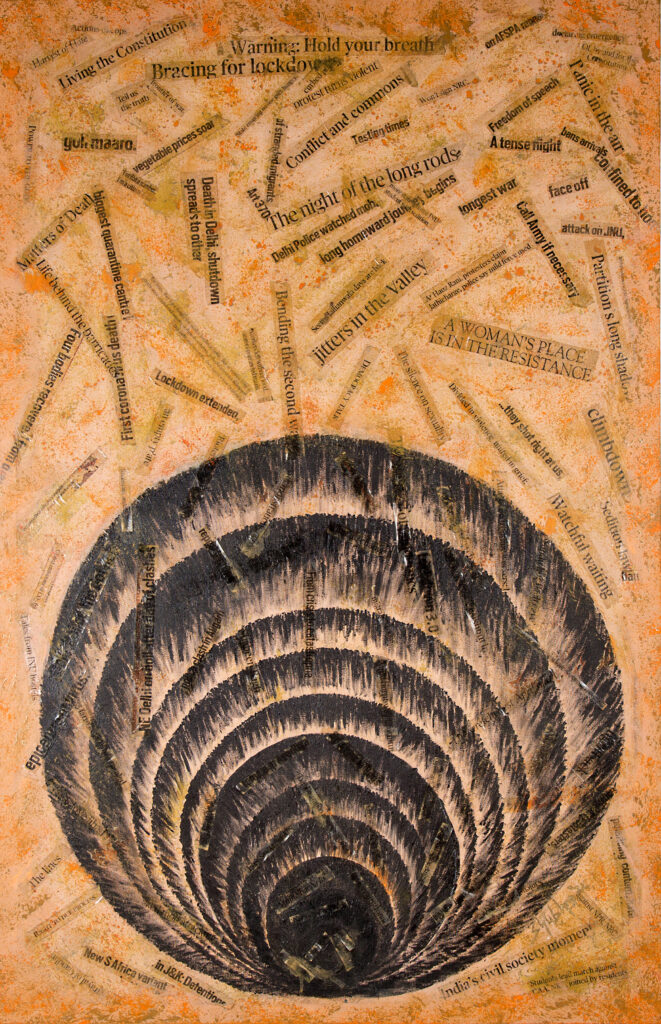
“You give us food, we give you nails,” said Chaturvedi, the pain evident in her voice. “You don’t have to agree with the farmers but can’t you sit across a table and talk to them? Why are you preventing them from coming in? This is their capital, their country…Why? My whole thought was – how low can we go?”
So, she crafted a series of bowls made of paper pulp. A bowl full of nails. ‘Jai Jawan Jai Kisan,’ she calls it. Her way of processing the anguish and presenting us with the possibility of keeping this anguish alive, to not let the farmers down.
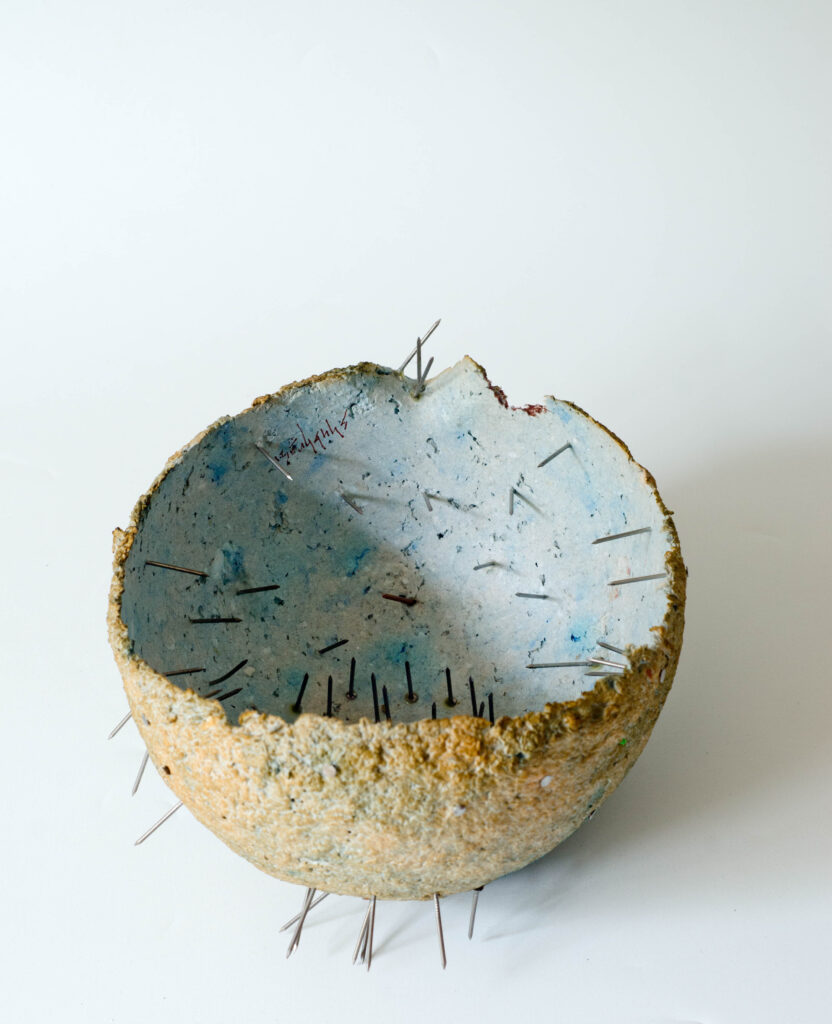
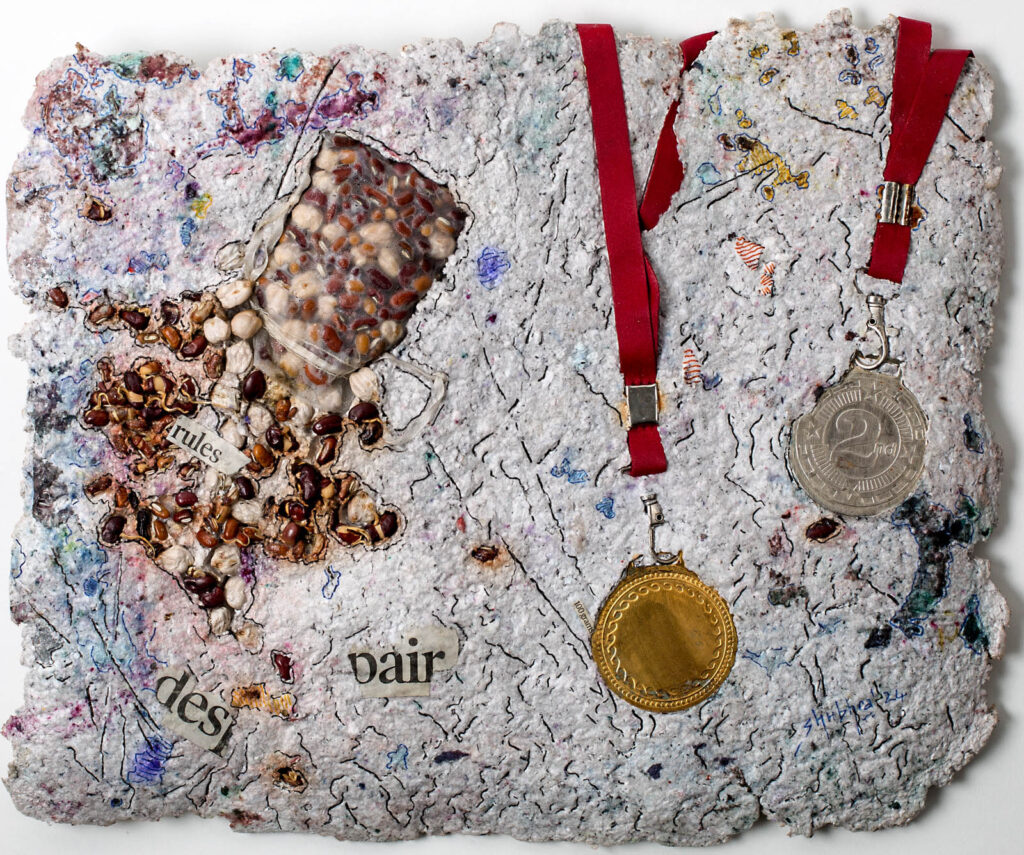
There is a painting that won her an award earlier this year, on precisely the subject of healing. Called `Gaza Patti,’ it is based on a poem that went viral. The poem told the story of the city of Gaza being an ancient site of healing and a place that gave the world the word gauze – from Gaza. Healing for Shubhra isn’t about putting a lid on the pummelling of Palestinians in Gaza or pellet injuries to protesting Kashmiris. It is about according them the dignity of empathy.
